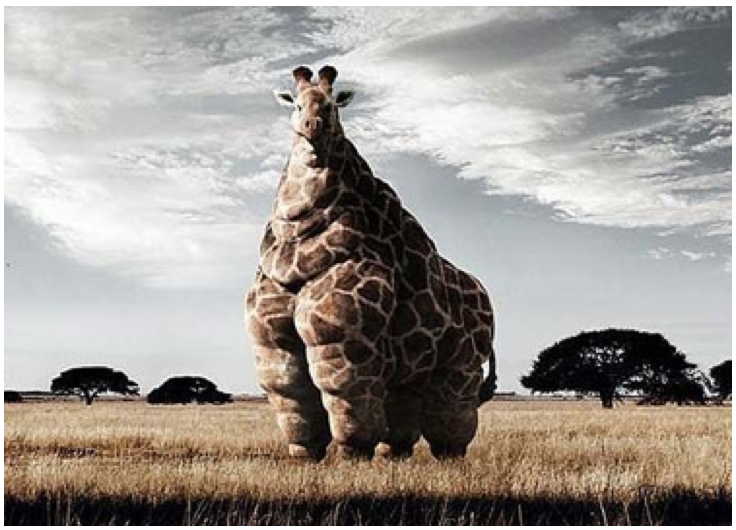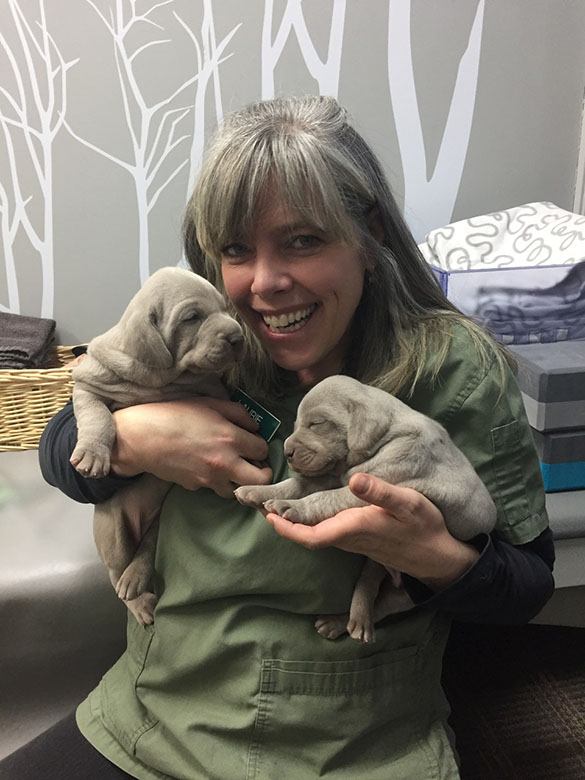Laurie's Blogs.
Oct 2017
Old and Chubby

I found a blog on tips for encouraging healthy pet diets (http://www.lifelearn.com/2017/10/18/4-tips-for-encouraging-healthy-pet-diets/) and it reminded me of a couple of stories.
A longtime client at my clinic was bringing his dog in for his underwater treadmill (UWT) appointment. He stopped to weigh his dog first (which he always does). The poor boy was up a few pounds, despite coming to UWT 2 – 3 x / week. The owner had made a comment that he was having a hard time keeping weight off of the dog since he was such a senior dog now and unable to do the same amount of exercise.
Those comments reminded me of years ago, when I stopped in to say 'hi' to my Great Aunt and Uncle. Aunt Lila was just leaving, but we popped in to chat with Uncle Harry for a bit. He was having dinner. A soft-boiled egg and toast. I teased him, by saying that if he figured Aunt Lila was starving him, that he could call me to sneak him food. His reply was serious. “I don’t move as much anymore. So, I don’t burn as many calories.”
Well, those simple words ring so true for our pets as well. If they don’t move much, or move less than before, then they don’t need the same amount of calories to sustain their weight.
The LifeLearn Blog gave four simple tips to help encourage healthy pet diets.
“#1: Identify the risks of unhealthy pet diets. The trick here is to inform clients without scaring them, or judging their efforts. After all, healthy nutrition isn’t about creating “skinny” pets; it’s about treating and preventing illness, injury and poor quality of life.
#2: Advocate “vetted” nutritional guidelines. Nutritional guidelines established by trusted animal health experts are built on years of research and study. Whatever the advice, try to book a follow-up to keep tabs on any progress.
#3: Advise against excessive treat-giving. For pet owners who think their dog is forever a good boy, or their cat is just purrfect (read: all pet owners), try suggesting instead rewarding furry friends with affection, toys, playtime, and—most importantly—attention.
#4: Encourage healthy alternatives. Whether as a reward for their dog’s hard work after performing a trained behavior, or even just because their budgie really is that cute, do encourage a host of healthy treat alternatives. You could offer do-it-yourself recipes at your practice, or post how-to videos on your veterinary social media. DIY isn’t for everyone, so consider offering healthy treat alternatives for sale at your practice too—a real win-win for everyone, especially pets!”
In regards to finding information, I like https://petobesityprevention.org as an educational tool. I really like the calorie calculations for weight loss provided on the site. (Or for FourLeg Members check out Video Training 39 & 40 on creating an "Obesity Program") I also find that owners need to be encouraged to give vegetables for treats. Some vegetables are higher in sugar content than others, but veggies are going to be better than Milk Bones! The other thing I’ve found over the years is that owners of chubby dogs also need to be encouraged to take their dog’s food down in small increments. So, an owner that is feeding double what she should, might take the news better if you suggest reducing the food / calories by ¼ to start, and then reevaluate after a few months.
To summarized my somewhat meandering blog… 1) Older pets that move less may need less food. The same would be true for pets recovering from a surgery. 2) Movement is an important part of weight loss, but diet is likely more important. 3) Owners need structured help to make a change with their pet’s weight loss. Perhaps creating a clinic weight loss program, lecture, or handout could help your ‘too fluffy patients’. Owners need some gentle coaxing, some great information, encouragement and cheerleading, and help to come up with a plan. BE their kindly advocate, their voice of reason, their gentle educator, and make a big difference in the health of their pet!
And until next time… Cheers!
Laurie


